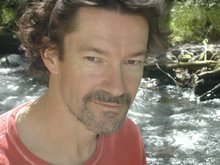I recently received in my electronic inbox an invitation to attend a scholarly seminar at our "flagship" university, the much heralded, though recently much maligned, University of Illinois at Urbana-Champaign (I would feel better disposed towards the institution if it shortened the name. Maybe a decent football team would also help since I spent a hapless Saturday last enduring an ignominious defeat to the mighty Penn State - should have got more for the $60 per ticket). I realize now the gulf between true scholarship and what passes for it in the lowlier backwaters of the community college, because I found I needed an interpreter and several dictionaries to make any sense of it, if indeed sense was anywhere to be found. I present to you the abstract and maybe ask your assistance in its interpretation.
MAPPING MULTIDIRECTIONAL MEMORY:
THE PROBLEM OF TRANSNATIONAL JUSTICE
by
Professor Michael Rothberg
University of Illinois at Urbana-Champaign
"In his recently published book on Holocaust remembrance in the age of decolonization, Dr. Rothberg argues that public memory is structurally multidirectional—that is, always marked by intercultural borrowing, exchange, and adaptation. But such structural hybridity does not imply that the politics of memory comes with any guarantees. In order to continue the urgent task of mapping the political stakes of memory, this talk considers the deployment of the Warsaw Ghetto in struggles for decolonization past and present. Focusing especially on the role of Warsaw memory in the contemporary Israeli/Palestinian crisis, he argues that at stake in articulations of multidirectional memory are divergent conceptions of solidarity, justice, and political subjectivity. This conceptualization of relationality has important methodological implications for transnational studies."
I did not realize that "mapping of political stakes of memory" was an "urgent task." Maybe fixing health care, climate change or the economy are urgent tasks. There again, perhaps I am just not qualified to offer opinions among such luminaries. And they tell me chemistry is hard...




